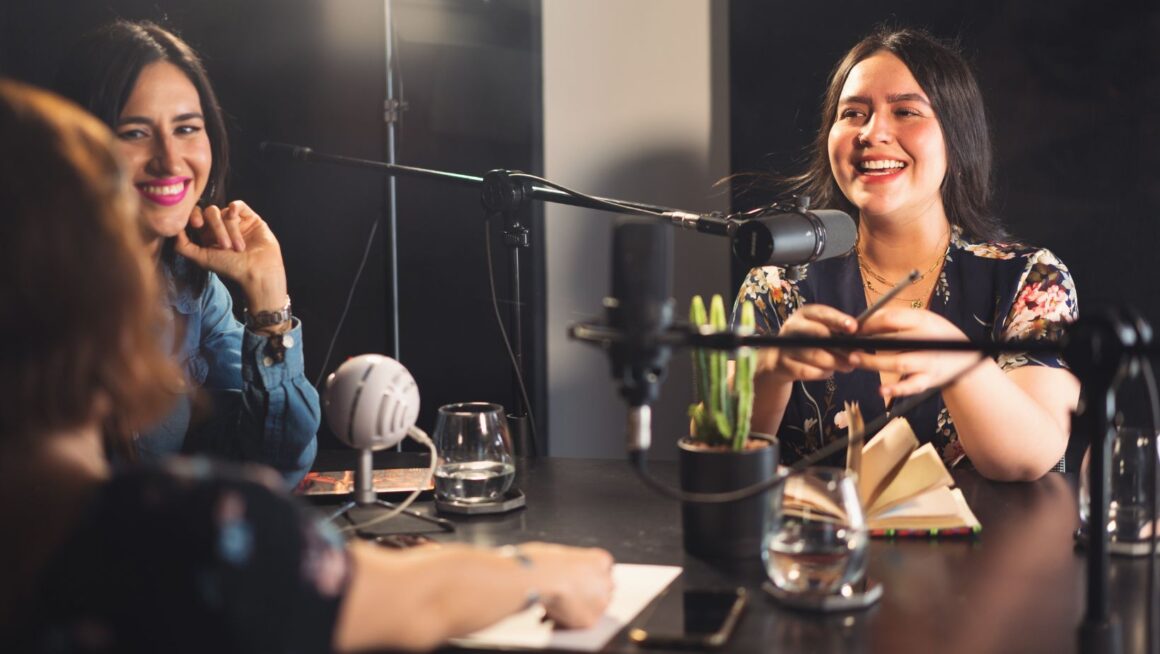With over 546 million podcast listeners worldwide, podcasts are not only popular but also hold great potential for creators and businesses of all sizes. Podcasts allow creators to share their passion with others, build a community, and monetize their work. For businesses, podcasts present an opportunity to grow their audience, establish themselves as experts in their niches, and generate more leads.
However, before any of this can happen, you need to choose a podcast style. A dedicated format will help guide your work as you start recording and publishing content, market your show, and deliver consistency for your audience.
A wide variety of podcast formats are typically used, each with its perks and drawbacks. Knowing what these are is the first step to finding your podcast style. Once you’ve explored the options, you can more seriously consider the format that best suits you and your podcast goals.
Pros and Cons of Typical Podcast Formats
Podcast styles can be grouped into several key types: solo, conversational, interview, narrative, theatre, and educational. The following are the typical characteristics and pros and cons of each.
Solo Podcasts
Solo podcasts are the simplest format to start with. You’re not tied to other people’s schedules to sit down and record, and you have the freedom to shape the flow of each episode the way you want. Since it’s just you talking, you’ll be able to build a personal connection with your audience, which can be a powerful community-builder. The drawbacks, however, are that you’ll be holding a conversation on your own, and you’ll need to be able to do so engagingly.
Conversational Podcasts
Conversational or co-hosted podcasts are a popular format to use. They allow for a free flow of ideas, ideally with an outline to stick to a topic and for topics to be explored from two viewpoints. With this format, it can be challenging to balance each co-host’s speaking time and requires more scheduling to accommodate each host’s availability, but a conversation between two people can be highly engaging for listeners.
Interview Podcasts
Interview podcasts are another popular format for various reasons. Having different guests in each episode brings a wealth of information and perspectives to audiences, and for businesses or creators, it’s an opportunity to organically increase their podcast’s reach.

As with co-hosted podcasts, scheduling can be tricky with this format. The art of interviewing can take time to perfect, particularly if you’re also moderating a panel of multiple guests.
Narrative Podcasts
Narrative podcasts can be fiction and non-fiction, with each episode building off the last to share a story with your audience, keeping them engaged and coming back for more. If you’re publishing a non-fiction narrative, you’ll have to dedicate a great deal of time outside of recording to research. If you’re creating a fictional narrative, you’ll have to shape the entire story, which requires a lot of creative energy and know-how.
Theatre Podcasts
Theatre podcasts are relatively uncommon, making it easier to stand out in this niche. However, they require a great deal of work and a high-quality final product. You’ll want voice actors and soundscapes to effectively share your theatre piece, which adds up to a lot of editing time.
Educational Podcasts
If you have a great deal of knowledge about a topic, an educational podcast can be a great format. Just keep in mind that you’ll need to coherently communicate information without using visuals to assist you.
How to Decide Which Podcast Format to Pursue
Now that you have a grasp of the most common formats, you can consider which format makes the most sense for you to pursue. Consider the following questions to help guide your decision-making process.
What Are Your Goals?
Keep in mind your reason for starting a podcast. Are you starting it to reach new audiences and generate leads for your business? In that case, an interview format may be a good fit since it not only places you in front of your existing audience but also helps you get in front of your interviewees’ audiences.
What Does Your Target Audience Prefer?
If you have an existing audience on other platforms, can you poll them about what they would like from you in a podcast format?

If you don’t have an existing audience, consider the subject of your podcast and how it can best appeal to your target demographic.
What’s the Competition Doing?
Looking at what others in your niche are doing can help you determine what format works well and show you where there are gaps in the existing podcast selection that might allow you to differentiate yourself.
What Are Your Strengths?
Playing to your natural strengths is a great way to set yourself up for success. Consider your creative abilities, conversational skills, interviewing skills, or any other relevant skills that will influence your ability to regularly plan, record, edit, and publish podcast episodes.
What Can You Realistically Manage?
If you’ve ever gambled online, you likely checked if the casino has a high-paying ratio to put the odds of winning in your favor, and you can approach choosing your podcast style with a similar attitude. You want to select the option that will be your best bet for long-term success. To assess this, evaluate your schedule and resources, and honestly ask yourself if you have the creative energy and time for a more complex style like a narrative or theatre podcast. Consider how much time you’ll need outside of recording for each format, and think about how well this fits your schedule without burning out.
Conclusion
With podcasts becoming an increasingly popular content style for listeners and creators, it’s natural to want to explore creating your own show. By familiarising yourself with the different formats explored here and carefully assessing your goals, audience, competition, and strengths, you can create a podcast that works for you and your listeners.


